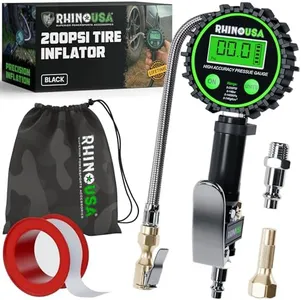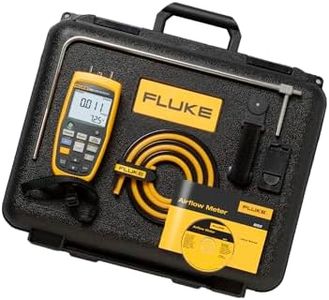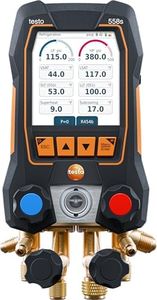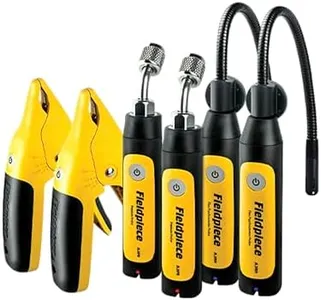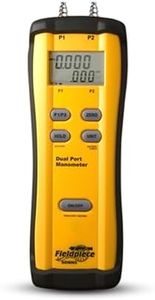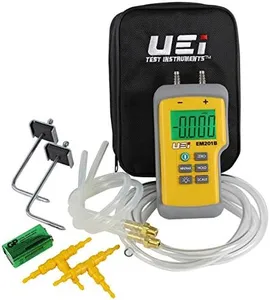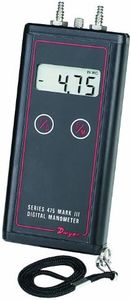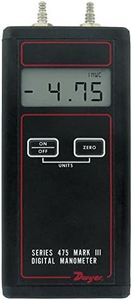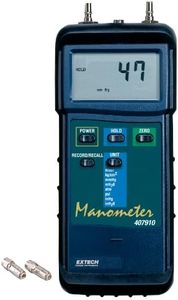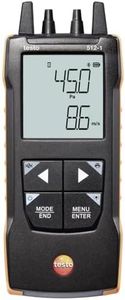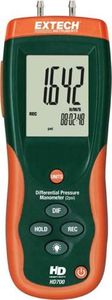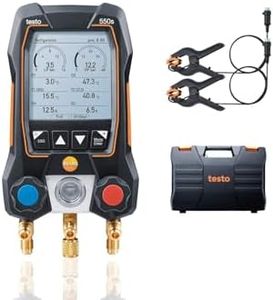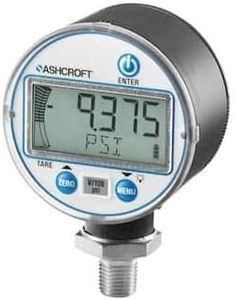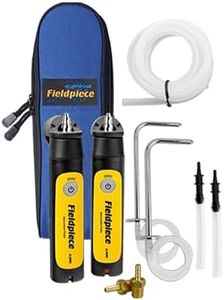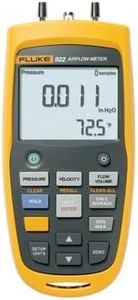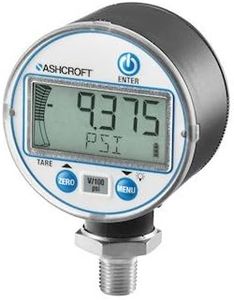10 Best Manometers 2026 in the United States
Winner
Our technology thoroughly searches through the online shopping world, reviewing hundreds of sites. We then process and analyze this information, updating in real-time to bring you the latest top-rated products. This way, you always get the best and most current options available.

Our Top Picks
Winner
Fluke 922/Kit Airflow Meter Kit
Most important from
22 reviews
The Fluke 922/Kit Airflow Meter Kit is a versatile tool well-suited for HVAC professionals and technicians who need to measure airflow and pressure with precision. One of its standout features is the bright, backlit display, making it easy to read in various lighting conditions, which is quite handy when working in less than ideal environments. It offers a high level of accuracy with a resolution down to 0.001 in H2O, ensuring you get precise measurements to optimize airflow and pressure systems effectively.
Another significant advantage is its ability to provide both differential and static pressure readings along with air velocity and flow metrics. This multifunctionality can save time and space, as technicians won’t need multiple devices to complete their tasks. The user-defined duct shape and size feature enhances accuracy further, allowing for tailored measurements that suit specific applications.
The Fluke 922 is also battery-powered, which is convenient, but users should keep in mind that it requires four AAA batteries. While these batteries are included, it’s essential to ensure you have replacements handy for continuous use.
Most important from
22 reviews
testo 558s Digital Manifold Gauge – AC Manifold Gauge HVAC for Long-Term Measurement on Air Conditioning, Heat Pumps – 4-Way Valve and USB-C – with Touchscreen, Bluetooth and App-Connection
Most important from
20 reviews
The Testo 558s Digital Manifold Gauge is a solid choice for HVAC professionals and anyone working with air conditioning, heat pumps, or refrigeration systems. It offers highly precise pressure readings with an accuracy of ±0.25% full scale, which means you can trust the results for critical tasks. The device handles a variety of refrigerants safely, including flammable types, making it versatile and compliant with modern HVAC demands. Its build quality combines glass and stainless steel, promising good durability, and it weighs about 3.2 pounds—portable but a bit on the heavier side for handheld tools.
One of its standout features is the interactive touchscreen paired with Bluetooth connectivity and a dedicated app. This combination allows you to see data trends over time and choose between a modern touch interface or a classic keypad, which adds flexibility for different user preferences. The dual power system using both AA batteries and a rechargeable USB-C battery is convenient, ensuring the gauge stays powered for up to 70 hours—great for long fieldwork.
The size and weight might be slightly bulky for quick, casual checks. Although the touchscreen and app integration add helpful features, those accustomed to simple analog gauges may require some adjustment initially. The Testo 558s is well suited for professionals who need accurate, reliable, and feature-rich digital manometers, especially when regular monitoring and data tracking are important.
Most important from
20 reviews
Fieldpiece - Job Link System HVACR Wireless Probe Kit - JL3KH6 - Fast Accurate Temps with Rapid Rail Technology - HVAC Tools with Padded Case
Most important from
555 reviews
The Fieldpiece Job Link System HVACR Wireless Probe Kit is designed for HVAC professionals needing fast and accurate temperature and pressure readings. It stands out with its rapid rail technology, which helps ensure reliable measurements by using the pipe itself to complete the circuit. This makes it less affected by surrounding air conditions—a handy feature when working in different environments like ductwork or walk-in coolers. The device stabilizes quickly, providing accurate readings within ±1° in under five seconds, which is great for saving time on the job.
Though primarily focused on temperature and pressure monitoring, it offers reliable pressure readings regardless of location, which is important for a tool in this category. The kit is lightweight and comes with a padded case, making it easy to carry and protect in the field. However, it requires 12 AAA batteries (not included), which is something to keep in mind for continuous use. The plastic build keeps it lightweight but might not be as durable as metal-bodied manometers if subjected to rough handling.
This product suits HVAC technicians who want a wireless, portable solution with quick, accurate readings and the convenience of the Job Link system. For those needing a simple, durable manometer strictly for pressure range variety or extreme durability, other models might be more appropriate.
